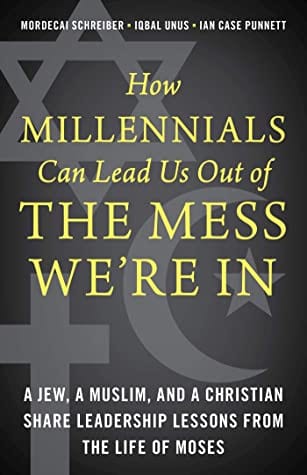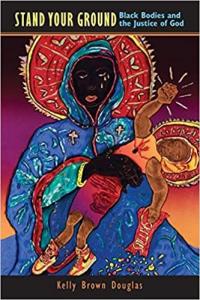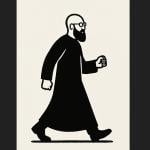James McGrath, over at Exploring Our Matrix, has a good reflection on the problem of sectarian, conservative Christian higher education. He points to the recent admission of Brandon Withrow, who resigned his faculty position from a Christian seminary (Winebrenner Theological Seminary) because he simply no longer identified with the faith perspective of the school. As Withrow explained, his intellectual processing over the years led him to disconnect from the Christian religion; he had become a “none.”

I don’t know much about Winebrenner Seminary; Withrow’s resignation seems to be a decision he came to after years of personal intellectual and theological development, rather than an issue of conflict with the school over a particular dogmatic issue. His ongoing theological and belief-transition created a dissonance with the school’s mission and requirements that faculty profess and active, personal Christian faith.
On the other hand, I have written previously about the situations of Thomas Oord and Daniel Kirk, professors at Northwest Nazarene University and Fuller Seminary, respectively. In their cases, their institutions are cutting ties with them, apparently for reasons of theological disagreement. They have not departed Christian faith or perceived themselves to be theologically at odds with their institutions. But they have found themselves on the wrong side of the theological orthodoxy of their schools, in any case.
McGrath informs us of another resignation related to an increased tightening of the borders of theological orthodoxy (i.e. “retrenchment”) at Bethel College in Indiana. Professor Jim Stump was forced to resign due to the college’s recent addition of the “historical Adam” in its faith statement.
For many of us who are observing the wranglings in evangelical higher education, it’s a strange phenomenon. The retrenchment into conservative positions and the elimination of dissenting voices seems like a bad strategy for so many reasons.
For one thing, it seems like bad business. Younger Christians are not getting more theologically conservative. The trend is the opposite. They are becoming less literalistic in their approach to the Bible, not more literalistic. Inerrancy is less tenable, not more tenable. They are becoming more accepting of homosexuality, not less accepting. They are more accepting of science, not more skeptical. As young people become more and more progressive, how many of these schools can continue to stay open for business?
A recent report showed that the Southern Baptist Convention lost over 200,000 members last year; the biggest single-year decline it has experienced. This particular notation stood out to me:
Of these, the only age group that has recorded any growth is for the pre-school children under 6 and those under 11. More than half the churches had not baptized any millennials. Baptism rates have been on the decline for eight of the last ten years.
For baptists, baptism rates essentially equate to new Christians coming into their fold. The statistics shows they are not attracting millennials. They are still getting some very young ones, but what will happen with those kids grow up? When they get to public school? When they are taught about evolution? When they start to question literal interpretations of the Bible?
What will happen is that most of them will leave the denomination–and many of them their Christian faith altogether–often because they have been taught an “either/or” faith that leaves no room for grappling with hard questions in brutally honest ways. This is not just true of the SBC (the denomination of my childhood and youth), but of conservative evangelical churches, denominations, and theological schools across the country.
McGrath puts the issue well:
I think we can answer the question of what causes people to lose their faith in contexts supposedly designed to prevent students from losing their faith. Academia is supposed to be about exploration and discovery. At conservative religious institutions, it is typically about stamping down on dissent. And so one learns not to be honest about the questions one has and the ideas one has come up with. This imposed hypocrisy is toxic to faith.
At Bethel University, the institution in which I formerly taught, at least one college faculty member has recently called for honest and open discussion within the school about their stance and policy on LGBTQ issues. It is encouraging to see faculty in public forums call on their institutions to do more of the very thing they are supposed to be doing anyway–honest exploration of complicated but extremely important questions. A fairly recent publication in Bethel’s student publication, though, suggests that this push for honest dialogue will be an uphill climb.
McGrath suggests that his move to Butler University may have helped save his own faith. While I didn’t feel in danger of losing my faith, I did feel in danger of losing faith in evangelical seminary education–and increasingly felt at odds with the common theological positioning of evangelical institutions.
There will always be an important place for conservative theological institutions in the landscape of Christian colleges and seminaries. Furthermore, the impulse to preserve the ideological “purity” of theological training institutions which serve particular denominational constituencies is understandable.
But I have a suspicion that the most strategic theological and ministerial training institutions for the future of Christianity will not be those that are most driven by retrenchment, but those which are most inspired by the creativity of change and that are most interested in pursuing truth wherever it leads. These will be the schools that provide the most conducive environment for the development of mature faith in their students–and that are most equipped to lead churches in asking and answering our toughest questions.
Stay in the loop! Like/follow Unsystematic Theology on Facebook for more theology and society discussions and posts.











